Finding the right herbal pain reliever can make a significant difference in managing discomfort naturally.
We at Kratom Cafe are here to guide you through the diverse range of options available, backed by scientific research and customer feedback.
Understanding what to look for is key to making an informed decision.
Let’s explore how to choose the most effective and safe herbal pain relievers.
What Are Herbal Pain Relievers?
Understanding herbal pain relievers starts with knowing the variety and their specific uses. Herbal pain relievers can be highly effective due to their natural compounds. Each herb has unique properties and benefits.
Types of Herbal Pain Relievers
There are several types of herbal pain relievers. For instance, turmeric is renowned for its anti-inflammatory properties, primarily due to curcumin. Studies have shown that curcumin’s pain-relieving effect is similar to over-the-counter NSAIDs. Capsaicin, found in chili peppers, has been used to manage neuropathic pain effectively. Essential oils like lavender, peppermint, and eucalyptus are also popular for their pain-relieving properties. Lavender is particularly useful for reducing pain severity when inhaled or applied topically.
Uses and Benefits
Different herbs are used for various types of pain. For muscle pain and arthritis, ginger and turmeric are highly effective due to their anti-inflammatory effects. In one study, ginger was shown to reduce muscle pain by 25%. For headaches and migraines, rosemary oil can be beneficial. Eucalyptus oil is effective for reducing pain and inflammation, making it suitable for conditions like arthritis. Clove oil is often applied for toothache pain relief, showing comparable results to ice in reducing pain severity.
Scientific Evidence and Research
The efficacy of herbal pain relievers is supported by numerous studies. For example, a comprehensive review found that turmeric’s effectiveness in pain relief is comparable to that of NSAIDs without the side effects. Another study highlighted the neuroprotective effects of feverfew, which can be beneficial for migraine management. Research on essential oils has shown that lavender reduces pain levels by an average of 39% in controlled trials. Further, capsaicin has been proven to significantly reduce pain in neuropathic conditions.
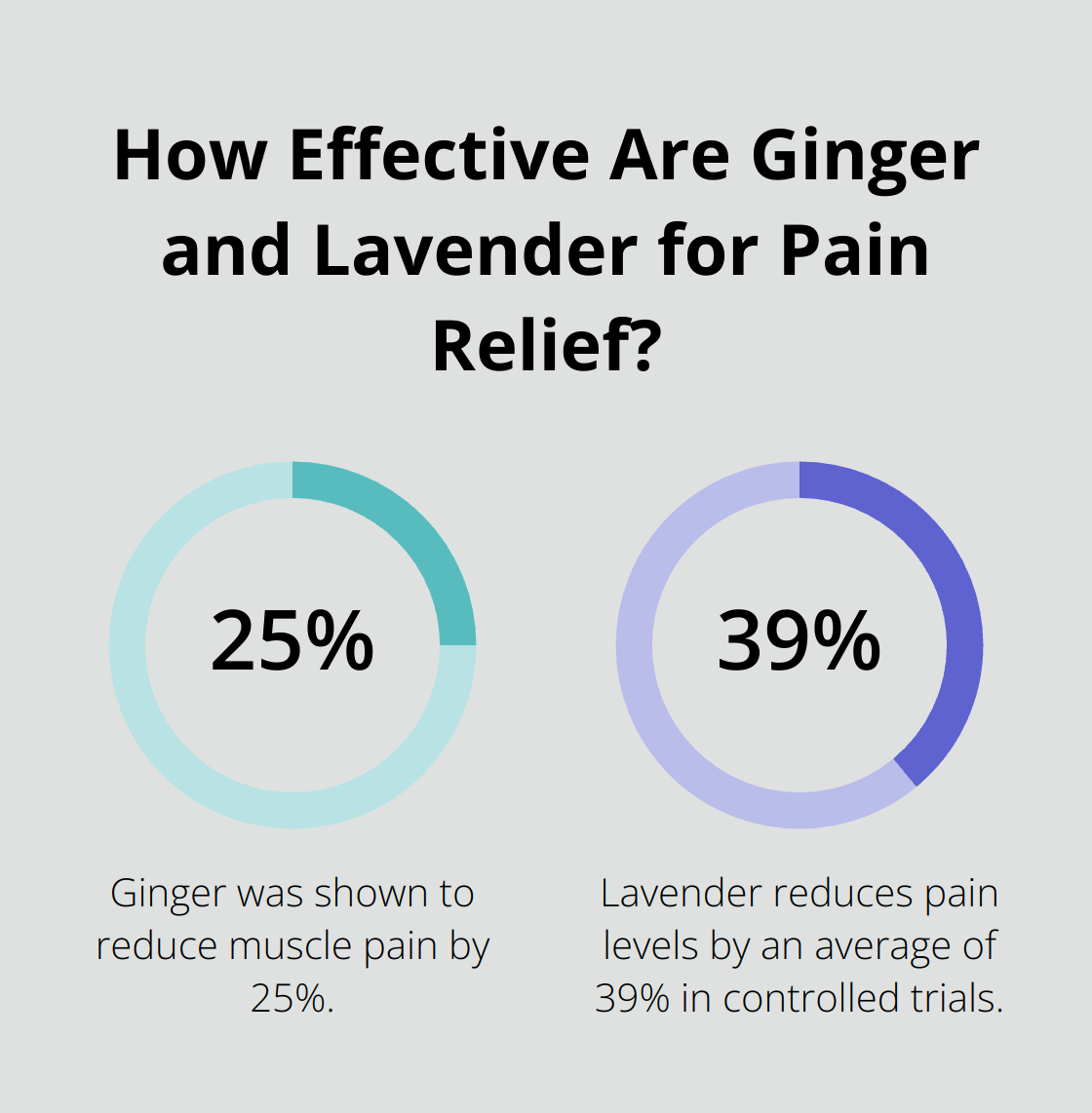
While the benefits are clear, it’s essential to understand that not all herbal remedies work universally. Always consult healthcare professionals before integrating these into your regimen, especially if you are on other medications, to avoid adverse interactions. To learn more about how to use these effectively, check out our natural remedies for chronic pain guide.
How to Choose Herbal Pain Relievers
Assessing Your Pain and Symptoms
The first step in selecting an herbal pain reliever is to understand the nature and intensity of your pain. For example, turmeric and ginger are excellent choices for muscle pain and arthritis because of their anti-inflammatory properties. A study published in the Journal of Clinical Interventions in Aging highlighted that turmeric can reduce pain levels in osteoarthritis patients by 58%. On the other hand, for neuropathic pain, capsaicin is highly effective, as it helps to interrupt pain signals sent to the brain.
Checking Ingredient Quality and Purity
It’s vital to ensure that the herbal pain relievers you choose are of high quality and purity. Organic and third-party certified products are often the best options. According to a study in the Journal of Medicinal Food, contaminants in herbal supplements can significantly reduce their efficacy and pose health risks. Checking for certifications like USDA Organic or third-party lab testing guarantees that the product is free from harmful additives and maintains its therapeutic benefits.
Verifying Dosage and Administration Guidelines
Equally important is adhering to the correct dosage and administration guidelines of herbal pain relievers. Research indicates that the improper use of these supplements can lead to ineffective pain management or adverse effects. For instance, a study in Phytotherapy Research found that taking excessive amounts of curcumin could lead to digestive issues. Always refer to the recommended dosages on product labels and, if possible, consult a healthcare professional. For more detailed instructions, you can look at guides on how to use natural painkillers.
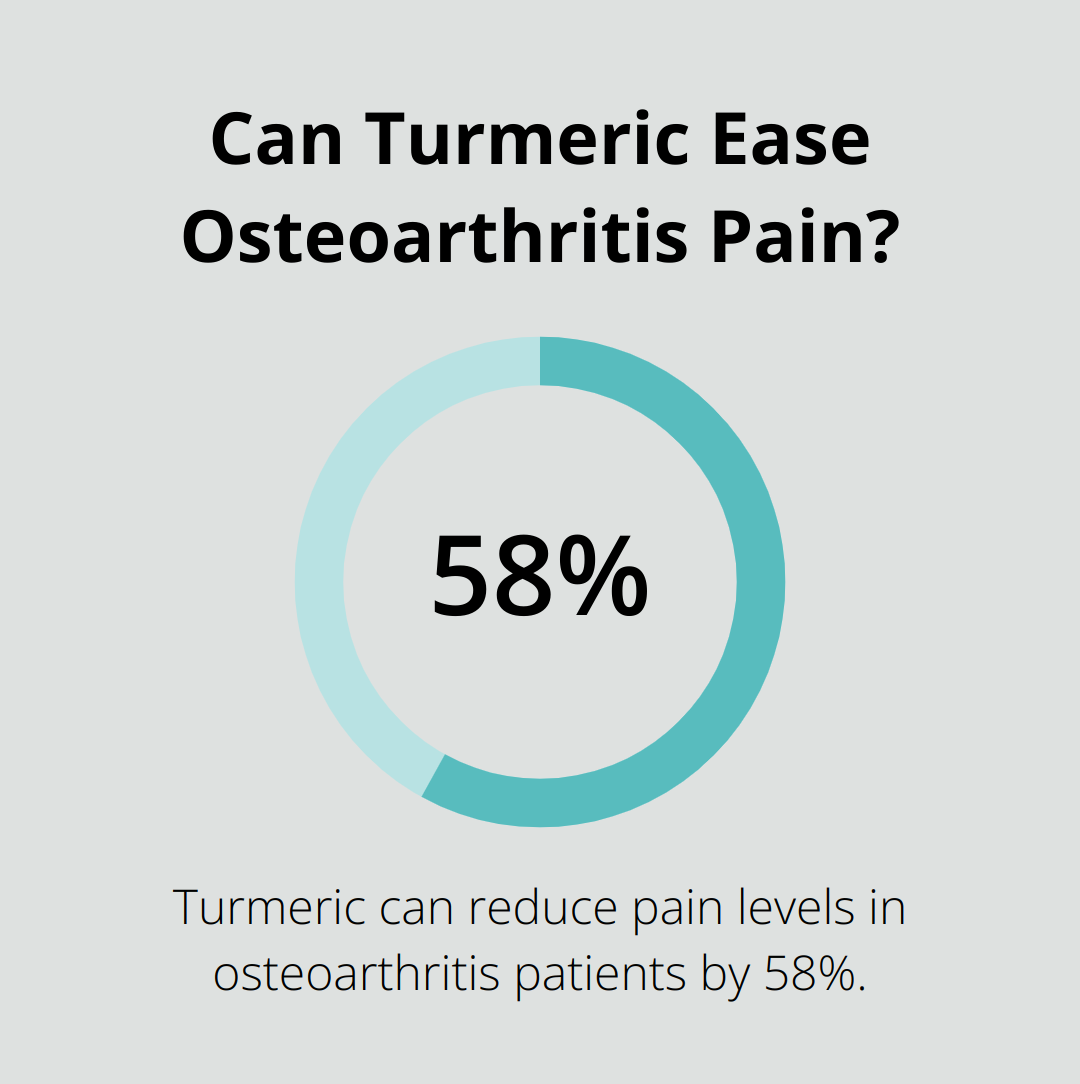
Selecting the right herbal pain reliever involves a careful assessment of your symptoms, strict evaluation of product quality, and meticulous adherence to dosage guidelines. Following these steps helps ensure both the effectiveness and safety of your pain management routine.
Top Herbal Pain Relievers
Overview of Popular Options
When it comes to effective herbal pain relievers, a few stand out for their scientifically backed efficacy and wide usage. Turmeric leads the pack, with numerous studies confirming its anti-inflammatory powers, comparable to over-the-counter NSAIDs. A study in BMC Complementary and Alternative Medicine showed that turmeric could reduce osteoarthritis pain by 50%. Ginger follows closely, proven to cut muscle pain by 25%, making it great for athletes and arthritis patients alike.
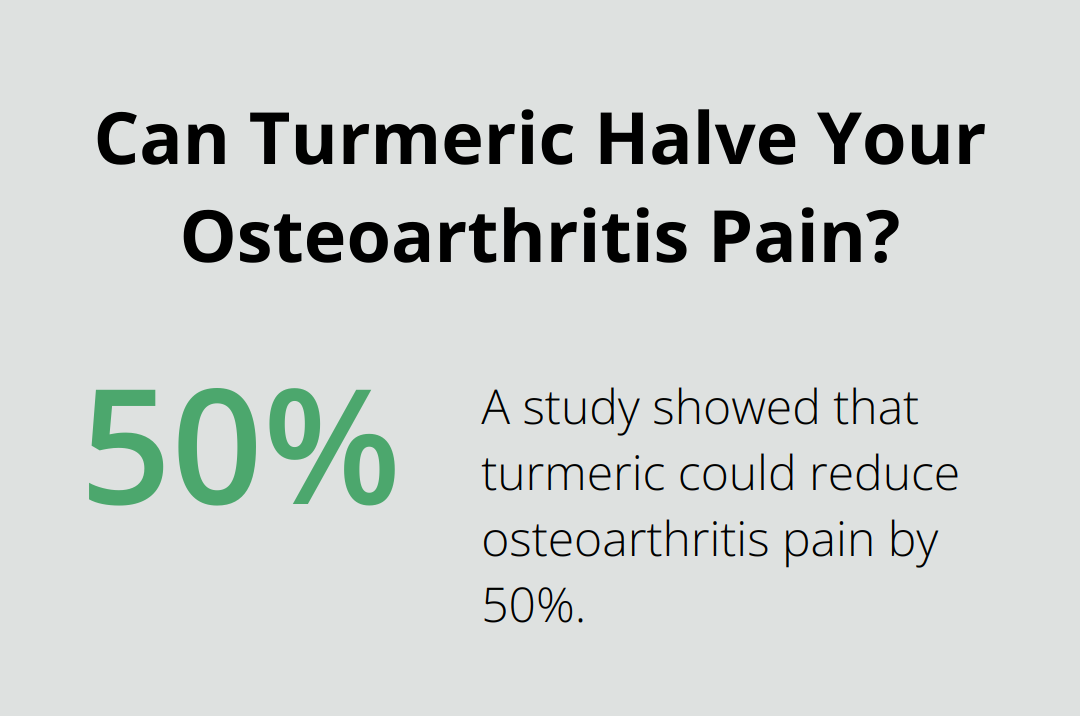
Capsaicin, derived from chili peppers, is another heavy-hitter for managing neuropathic pain. Clinical trials have consistently demonstrated its ability to reduce pain signals in conditions like diabetic neuropathy. Essential oils like lavender and eucalyptus also provide strong options. Controlled trials reveal that lavender can lower pain levels by 39%, while eucalyptus effectively reduces inflammation.
Comparative Analysis
Turmeric’s primary advantage lies in its strong anti-inflammatory properties, which make it versatile for conditions ranging from arthritis to general muscle pain. Ginger shares these benefits but excels more in reducing muscle pain, particularly post-exercise. Capsaicin, while not anti-inflammatory, effectively addresses nerve pain, making it a specialized option.
When comparing essential oils, lavender proves most beneficial for general pain relief and relaxation, while eucalyptus shines in reducing arthritis-related inflammation. Research published in the Journal of Ethnopharmacology has supported these findings, making both oils valuable for home-based pain management.
Customer Reviews and Feedback
Customer feedback on these herbal pain relievers often highlights turmeric’s quick and noticeable impact on chronic pain, particularly in older adults dealing with arthritis. Users also praise ginger for its effectiveness in muscle recovery and mild gastrointestinal side effects compared to synthetic drugs. Capsaicin creams receive consistently high marks for neuropathic pain relief but often come with warnings about the initial burning sensation upon application.
Essential oils receive varying feedback. Lavender oil is hailed for its dual benefits of pain relief and improved sleep quality, a crucial aspect for chronic pain sufferers. Eucalyptus, preferred for its anti-inflammatory effects, is also popular for its pleasant aroma and ease of use in diffusers or topical applications.
For more tips and detailed insights, consider checking out guides on natural remedies for chronic pain and herbal solutions for pain.
Conclusion
Choosing the best herbal pain relievers hinges on understanding the unique benefits of each herb, assessing your specific needs, and ensuring product quality. Our exploration covered effective herbs like turmeric, ginger, and capsaicin, each supported by scientific research for their pain-relieving properties. Studies have proven turmeric’s ability to reduce osteoarthritis pain by half, while ginger can decrease muscle pain by 25%.
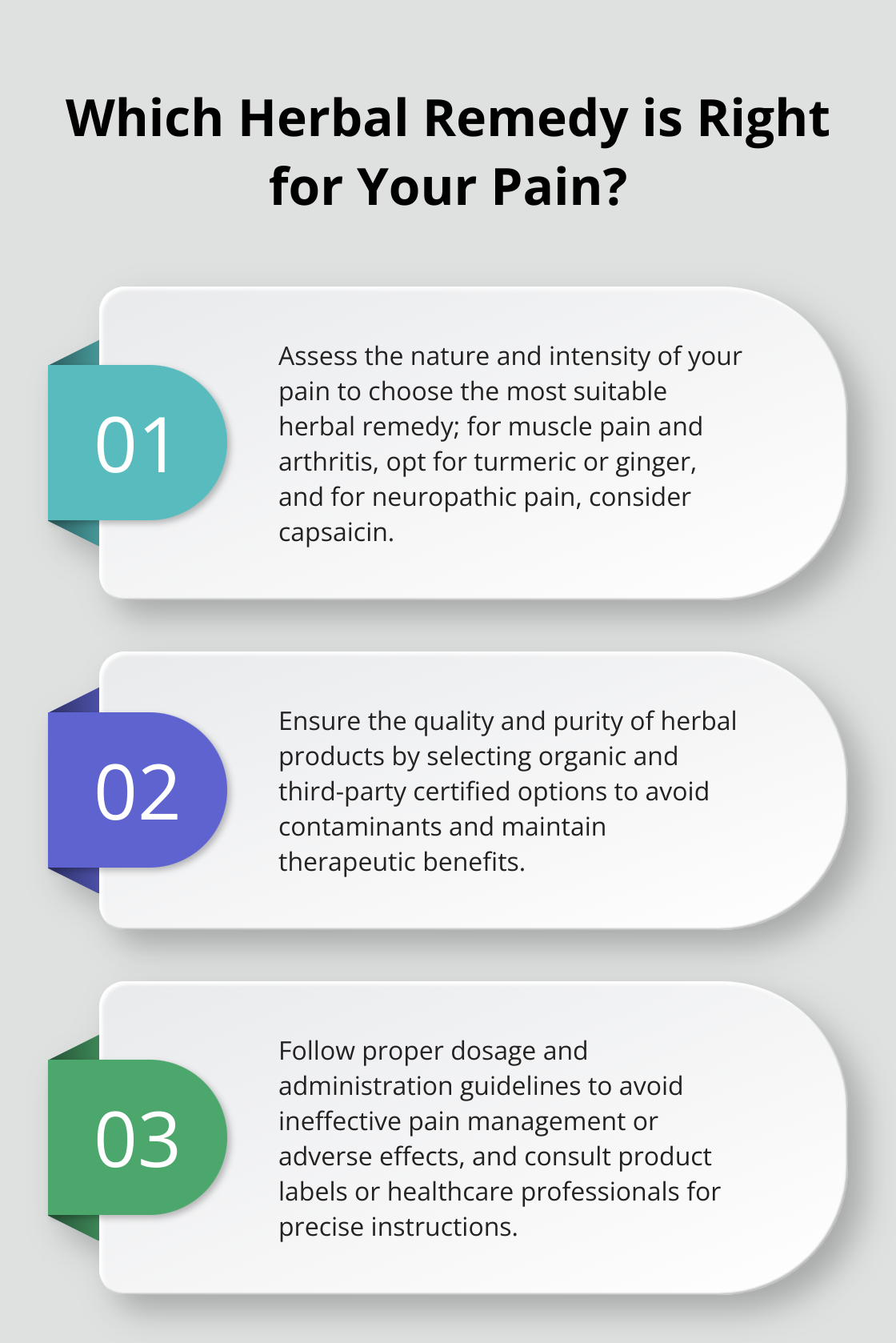
We emphasized the importance of checking ingredient quality and sticking to recommended dosages. Using high-quality, organic, and third-party certified products ensures effectiveness and minimizes health risks. Research indicates that contaminants can undermine the benefits and introduce potential hazards.
Before incorporating any herbal remedy, consulting with healthcare professionals is essential. This helps in tailoring the choice to your specific pain type and avoiding adverse interactions with other medications. Our detailed insights aim to support you in making informed decisions for your pain management routine.
At Kratom Cafe, we are dedicated to providing you with comprehensive resources and the latest research on herbal and kratom-based solutions for wellness. For further guidance, you can explore more on our website.
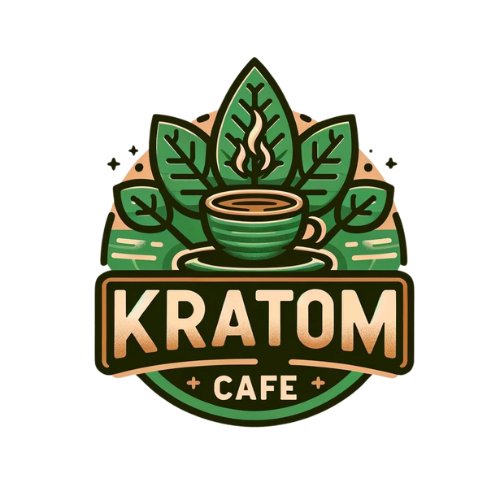

Leave a Reply